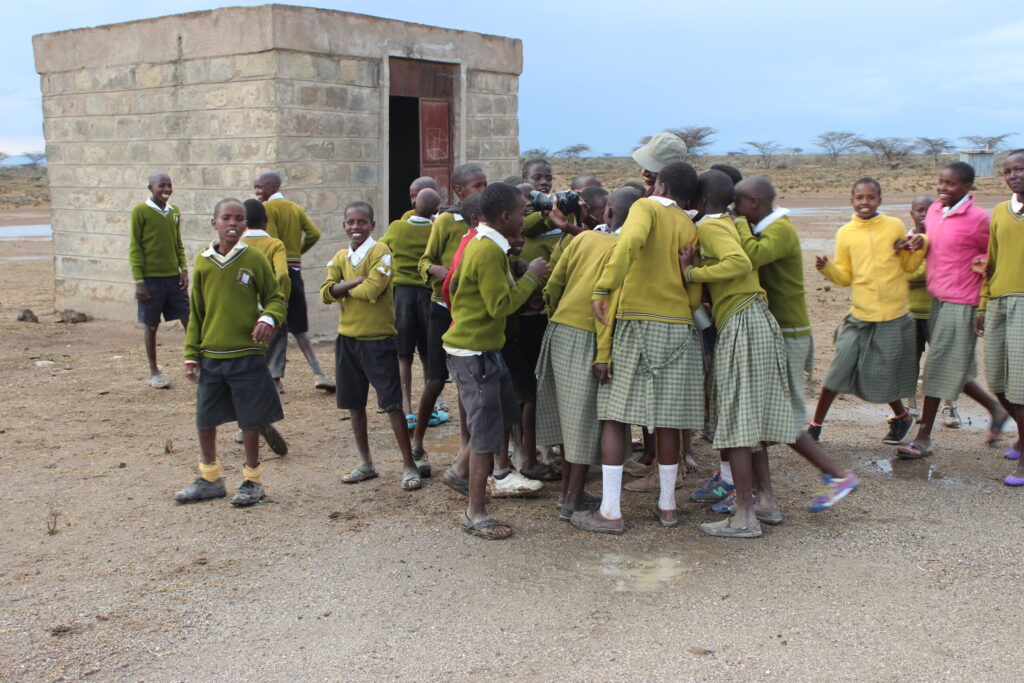Damaris Tong’oyo is a 14-year old class 7 pupil at Nkairowani Primary School in Narok County. She is the firstborn of 7 siblings, and a prefect at the school. Damaris wants to be a science teacher when she grows up, a dream she says has been inspired by the role teachers play in moulding people’s lives. Damaris has big dreams for her future just like many children her age, but because of the persistent lack of access to safe water for domestic use, in her community, the realization of these dreams may remain unfulfilled.

According to the 60 million girls Foundation, 33 million primary-aged children are out of school in Sub-Saharan Africa, which is more than half of the total out-of-school population for this age group. While there are a number of reasons at broader levels, for Damaris and her schoolmates, lack of access to safe water is a real concern and a potential barrier to their education.
Damaris says that she has to wake up at 4.00 am every morning to milk the goats and thereafter light a fire to make breakfast for her siblings before they leave for school. Once she is done, she has to go to fetch water at a water point almost an hour away. She does this every school day because they are required to carry water to school for cooking their school lunch, and for general cleaning in the school. Damaris says, “…Sometimes by the time I get to the water point, there are many people there, and it takes time to fetch the water. Most times the community people allow us, pupils, to fetch water first so that we don’t get to school late, but this is not always the case. I sometimes end up missing the morning preps, and getting to class really tired.” Damaris’ story is replicated in many other pupils’ lives at her school. The long treks looking for water affects pupils’ attendance in school, causing a number of them to drop out altogether and solely focus on helping out their families. This seems to be the norm as many pupils have dropped out of school as a result. School enrollment is also significantly affected because parents prefer to have their children stay home to help look for water both for domestic consumption and for their livestock, which is their main source of livelihood. In extreme cases, young girls get married off early, and boys are sent off to work to reduce the cost of upkeep on family finances.
Damaris says that sanitation in their school is also a challenge for them. She says that they have only two latrines in school, which are for everyone, including their teachers, and they are not sufficient. She thoughtfully adds that because of the water challenges, they are not able to clean their hands after using them or even have the latrines themselves cleaned. “The latrines are in a , smell really bad and most of my classmates do not like using them. The smaller children are also afraid of using them and they relieve themselves out in the open most of the time. The deplorable state of the latrines makes it very difficult for us to manage our menstruation safely and with dignity, and most of us opt to miss school when we are on our monthly period, which really affects our school work.”
She was excited to learn of the proposed interventions the 100% project funded by N2S Foundation is planning to carry out in her school. The project plans to not only drill and equip a borehole for them to help ease their water problems, but also plans to construct for them additional modern, safely managed latrines, both for the pupils and for the teachers to enable each one of them to safely use the latrines whenever they need to. She added that she is also happy because they will be able to live in a clean environment, and also be able to bathe and wash their clothes regularly.
Damaris says, “… the borehole will benefit the school and our community because we will not spend a lot of time looking for water. We will have enough time to help our parents at home and also attend to our school work, and stop getting to class late as has often been the case.”
